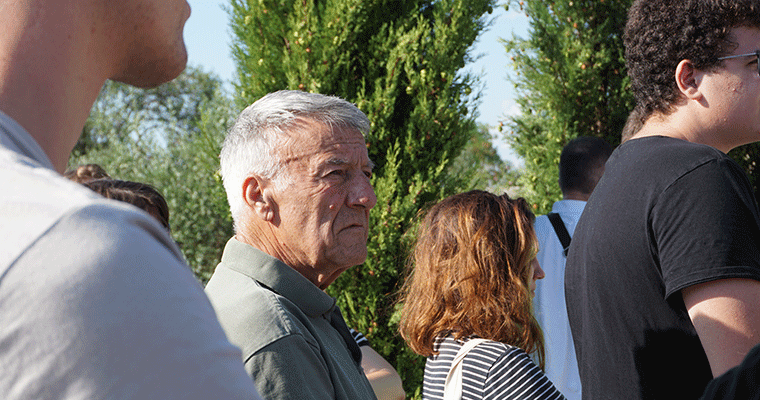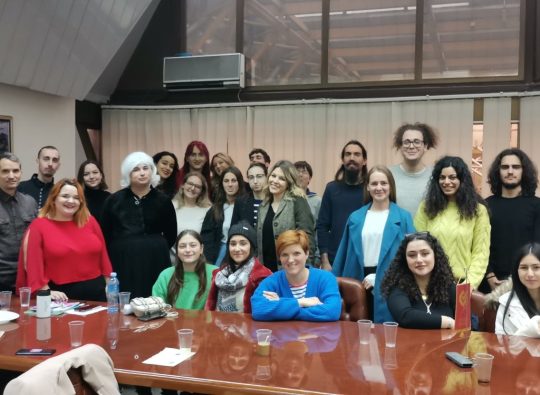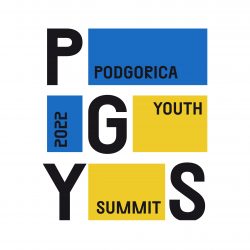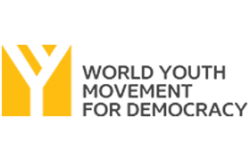With flags hoisted on homes and public buildings, and a well-rehearsed official ceremony, Croatia is readying to celebrate the 24th anniversary of a military offensive that snuffed out a rebel Serb statelet and ended Croatia’s 1991-95 war of independence from socialist Yugoslavia.
But some have already held their own more low-key commemoration of the four-day blitz code-named Operation Storm.
On Saturday, around thirty young people, Serbs and Croats, visited two small, forgotten villages where Croatian Serbs lost their lives during and after the 1995 offensive, among more than 600 Serbs believed to have been killed. Up to 200,000 fled for neighbouring Serbia, which had backed the rebels during the war.
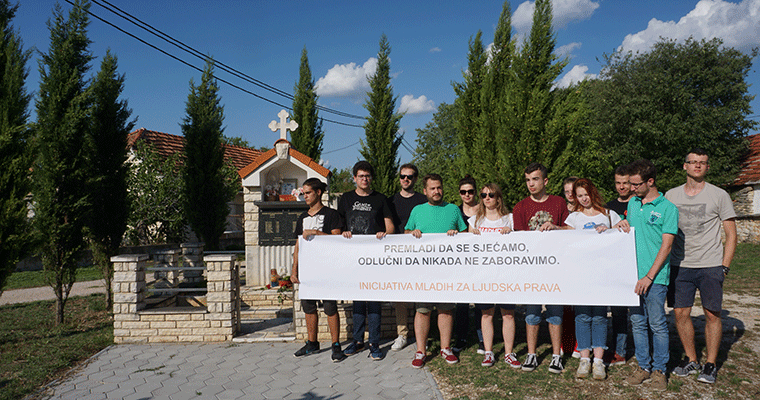
Varivode, Croatia
Nikola Puharic, of the Croatian branch of the Youth Initiative for Human Rights, YIHR, said they had gathered “to show solidarity with all victims of crimes committed in the aftermath of the Storm military operation”.
Speaking in front of a memorial to nine killed Serbs in the village of Varivode, west of the former rebel stronghold of Knin, Puharic said the activists wished to demonstrate to political leaders in Croatia and Serbia “that cooperation on issues of commemorating crimes, expressing solidarity with victims and realising victims’ rights and justice is possible and necessary between two states.”
The nine were executed in their homes or yards by Croatian soldiers and police in September 1995, almost two months after Operation Storm was declared over on August 7.
‘Story told many times’
Jovo Beric’s parents were among the victims. His claim for reparations from the Croatian state is still before the country’s Supreme Court.
“It’s a story I’ve told many times, and I’m a little bit tired,” he told the few journalists covering the event.
In 1991, when war broke out, Varivode had 477 inhabitants, all ethnic Serbs. Now, Beric said, just 80 elderly residents remain and only one child attends the local school.
It is a familiar story across the former self-proclaimed Republic of Serbian Krajina, where very few of those Serbs who fled have returned.
In the nearby hamlet of Gosic, the deputy leader of the Serbian National Council, a body representing ethnic Serbs in Croatia, read a traditional statement of commemoration next to a memorial bearing the names of eight Serb victims.
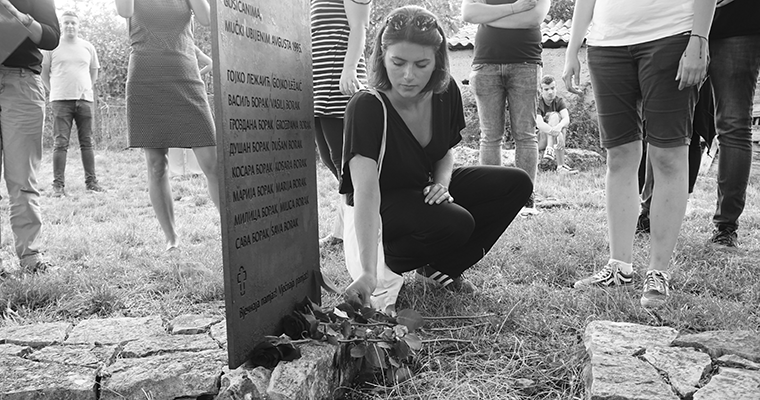
Gošić, Croatia
“Although we are not part of the collective memory established by the state, it is up to us to say, fearlessly and with dignity, the names and surnames of the victims and the names of their villages and towns, to remember them freely,” Aneta Vladimirov read.
“We do not forget anybody or anyone else’s suffering, whether from the Croatian or the Serbian side, female or male, elderly or child, military or civilian. We remember all those who are gone.”
Never forget
Operation Storm was carried out with the tacit backing, and advice, of the U.S. military.
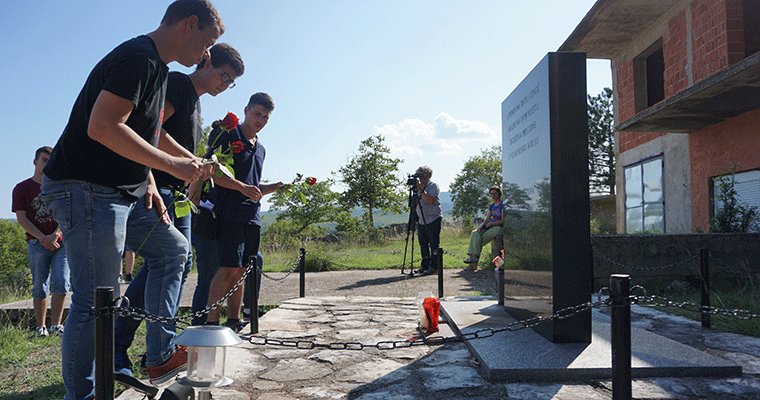
Ervenik, Croatia
To Croatia, it was a dramatic success, wiping out a rebel-held statelet that had fought with the support of the Serb-dominated Yugoslav People’s Army and Serbian paramilitaries to carve out an ethnically pure Serb state from the ruins of Croatia and Bosnia. The Serb rebels expelled between 200,000 and 250,000 non-Serbs from their self-proclaimed statelet.
Croatia, which joined NATO in 2009 and the European Union in 2013, celebrates the operation each year with much military pomp. Critics say it has done little to acknowledge and address the suffering inflicted on Serb civilians during and after the offensive, which saw huge columns of Serb refugees flee for Serbia, their belongings loaded onto tractors and horse-drawn carts.
The Croatian Helsinki Committee says 677 civilians died during and after Operation Storm. Croatian courts have convicted only one person of war crimes stemming from the offensive.
Saturday’s memorial tour, organised by the Croatian and Serbian branches of the YIHR, also took in the small village of Ervenik. They placed flowers in front of the home of the Cengic family, four members of which were killed during a 1992 attack on non-Serbs in the region.
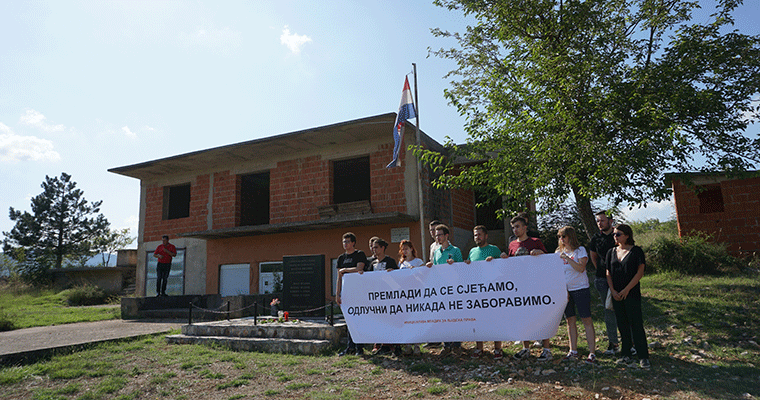
Ervenik, Croatia
The day before, the activists visited Vukovar, the border town in eastern Croatia that fell to the Serb-controlled Yugoslav People’s Army in November 1991 after a devastating three-month siege in which more than 3,000 soldiers and civilians died.
At each stop, the activists raised a banner in Latin and Cyrillic script declaring, ‘Too Young to Remember, Determined Never to Forget.’
Marko Milosavljevic, of YIHR Serbia, said they wished to pay their respects to victims regardless of their nationality.
“This is important for the future of the region because we cannot build a future on hate and on the constant tensions that political leaders stoke by spreading nationalism and hate.”

